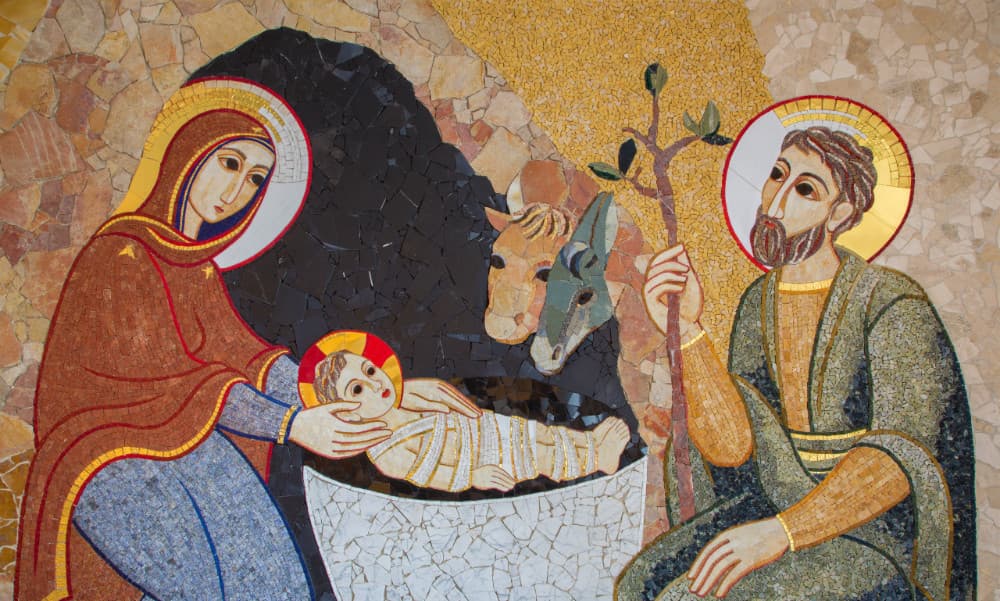ROME – Pope Francis’s Jesuit order has decided to prohibit a prominent member, whose prized murals adorn churches and chapels around the world, from further artistic activity following fresh allegations of sexual misconduct.
Slovene Jesuit Father Marko Ivan Rupnik, 68, has been accused of sexual misconduct with nuns and barred by his order from public ministry.
In a statement Tuesday, the Society of Jesus, to which Pope Francis and a handful of other powerful Vatican officials belong, said it had received “several new accusations” against Rupnik since his case initially exploded last December, and that as a result, he would be barred from any public artistic activity.
Given the nature of the complaints – which include alleged spiritual and psychological abuse, sexual molestation and abuse of conscience – and the timing of the alleged incidents, “the degree of credibility of what was reported or witnessed seems to be very high,” the Jesuits’ statement said.
Most of the newly reported incidents happened between the mid-1980s and 2018, covering an arc of more than 30 years.
Rupnik’s case initially made headlines in December when Italian blogs and websites reported that for years, consecrated women had accused him of spiritual and psychological abuse and sexual misconduct. The women belonged to the “Skupnosti Loyola” or Loyola Community, a religious order in Rupnik’s native Slovenia, and their allegations dated back to the 1990s, when Rupnik served there as a spiritual advisor.
In between traveling the world for new commissions and projects, Rupnik worked and resided at the Centro Aletti, a community of international artists and theologians, composed of women and men, located in Rome. Rupnik’s artwork is still featured prominently on their website, as are several YouTube videos of featuring his homilies and artistic ventures.
After initial reports on the Rupnik allegations began to circulate last year, the Jesuit Order admitted that Rupnik had been briefly excommunicated in 2020 for having committed one of the church’s delicta graviora, its most serious crimes, by using the confessional to absolve a woman with whom he’d had sexual relations.
However, Rupnik reportedly repented of the crime and the excommunication was quickly lifted.
A year later, Rupnik was accused by nine women of sexually, psychologically, and spiritually abusing them at the Loyola Community, which he co-founded, in the 1990s.
At the time, the Jesuits recommended a canonical trial be opened, however the Vatican’s Dicastery for the Doctrine of the Faith (DDF), led by Spanish Jesuit Luis Ladaria, denied the request, refusing to lift the statute of limitations, which it has lifted in other cases, and thus declared the offenses unable to be prosecuted.
Details on the Rupnik case have remained obscure, and questions have been raised by many as to whether he was protected by the Vatican, where a Jesuit pope reigns and another Jesuit, Spanish Cardinal Luis Ladaria, heads the office where abuse allegations are tried.
In an interview with the Associated Press last month, Pope Francis denied he had anything to do with the Rupnik case other than to intervene on a procedural note, allowing the new allegations to be considered by the same tribunal as the earlier ones.
As the scandal unfolded last fall, the Jesuits barred Rupnik from public ministry, from making any public comments, and from leaving the Lazio region where Rome is situated.
They invited anyone with other claims to come forward, and as a result, according to the Associated Press, 15 new complaints were made against Rupnik, 14 by women and one from a man.
According to the Jesuit statement published Tuesday, the team tasked with investigating Rupnik’s case, which is overseen by Jesuit Father Johan Verschueren, conducted interviews with each of the new alleged victims and compiled an “exhaustive dossier,” which was delivered to Verschueren along with their own set of conclusions and recommendations for potential next steps.
The Feb. 21 statement said that Verschueren, after reviewing the dossier, deemed that there was not enough to send the case to Italian criminal courts, but that from a canonical perspective and in terms of how Rupnik spends the remainder of his life, the scenario “is quite different.”
In terms of what happens next, the statement said there are several options. While defrocking or a dismissal from the Society of Jesus are still on the table, there is also the possibility of Rupnik repenting and taking responsibility for his actions.
According to the Jesuits’ statement, after having read the entire dossier on Rupnik and the investigatory team’s conclusions and recommendations, Verschueren said it is his “firm intention to proceed with measures to ensure that situations similar to those referred to do not occur.”
Verschueren now intends to meet with Rupnik, who refused to be interviewed as part of the investigation into the new allegations against him, to hear his side of the story, which the statement said “may result in a disciplinary measure.”
In the meantime, restrictions on Rupnik have been tightened “as a precautionary measure,” and he is now forbidden to participate in any public artistic activity, especially those involving religious structures and entities, such as churches, chapels, oratories, retreat houses, or ecclesial institutions.
Rupnik was already forbidden from exercising any form of public ministry and from publicly celebrating the sacraments, and is barred from making public statements and from leaving the Lazio region.
Verschueren in the statement stressed that the Society of Jesus has “a duty to seriously address these cases and other similar ones that have arisen and are still present, with respect and protection of the truth and justice for all parties involved.”
Rupnik has been informed of the nature and content of the allegations against him, and Verschueren’s decision to restrict his artistic activity. The decision has also been communicated to those who came forward.
Follow Elise Ann Allen on Twitter: @eliseannallen










